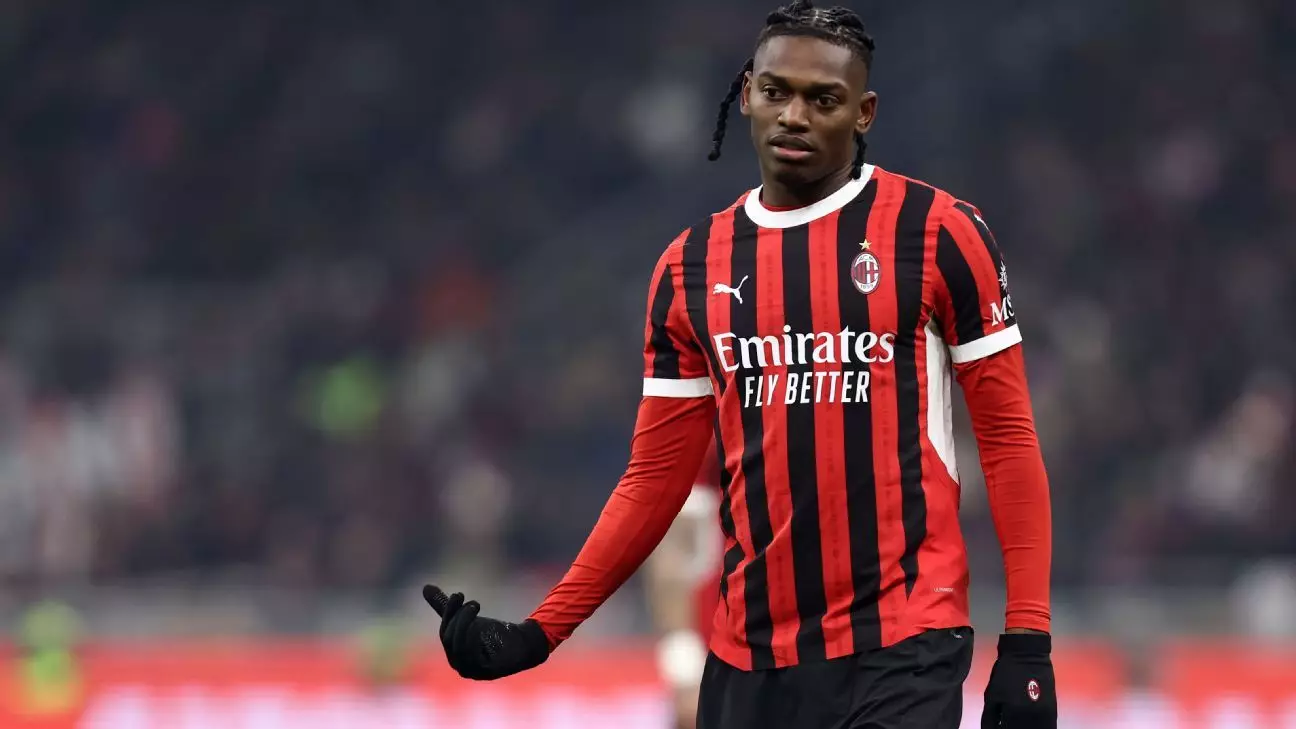In an era dominated by astronomical transfer fees and aggressive club ambitions, the landscape of professional football is undergoing a seismic shift. Clubs today no longer see players merely as athletes but as pivotal assets with the power to define their financial and sporting futures. For instance, Barcelona’s pursuit of Rafael Leão with a reported bid of €70 million, plus variables, underscores how the valuation of top-tier talent now transcends traditional boundaries. This figure is significant, not merely in monetary terms but in illustrating the growing willingness of clubs to spend lavishly on players they believe will bring immediate impact. Yet, such high valuations also reveal underlying financial strains, as clubs cautiously navigate their budgets amid fluctuating revenues, especially when European competitions are off the table for Milan this season. Similarly, Bayern Munich’s failed attempt to lure Leão highlights the fierce competition for young, versatile forwards who can change the course of matches and, by extension, club fortunes. These transfer developments are not isolated incidents but emblematic of a broader trend: clubs are increasingly willing to stretch financial limits to assemble a squad capable of triumphing domestically and continentally. However, this rush for talent might also plunge some clubs into financial instability, challenging the sustainability of such aggressive spending in the long run.
Strategic Shifts and the Race for Emerging Talents
Most clubs are now engaging in meticulous talent scouting, aiming to secure high-potential players at a bargain before their market value skyrockets. Arsenal’s urgent search for a striker exemplifies this strategic shift. With negotiations dragging over Viktor Gyökeres, the Gunners are under pressure to finalize a signing swiftly, within a fortnight if possible, to bolster their attacking options. Their reluctance to overpay for Benjamin Sesko, offering around £60 million against Leipzig’s demands of over £70 million, demonstrates a nuanced approach—balancing ambition with fiscal prudence. Such negotiations reveal the changing dynamics of transfer dealings, where clubs aim to buy smart rather than just buy expensive. Furthermore, the debate surrounding Newcastle United’s interest in Giorgio Scalvini and the pursuit of dynamic players like Lorenzo Lucca from Udinese shows how clubs are investing heavily in youth and potential, rather than only established stars. This philosophy not only prepares clubs for future success but also mitigates immediate financial risks associated with aging players on large wages.
Shifting Loyalties and the Power Dynamics Among Top Clubs
Another critical insight from recent transfer activity is the shifting allegiances of high-profile players. Nico Williams’ decision to reject Barcelona in favor of signing a 10-year deal with Athletic Bilbao sends a powerful message: players are increasingly valuing identity and stability over the glamour of big-name clubs. This raises questions about Barcelona’s long-term recruitment strategy—are they losing their magnetism for young talents due to financial constraints or leadership changes? Meanwhile, Manchester United’s willingness to lower salary demands to bring Marcus Rashford closer to a dream move reflects how player preferences can influence club decisions. Rashford’s wish to join Barcelona, even at reduced wages, demonstrates that player agency now significantly impacts the transfer market. Clubs must recognize that talent is no longer just about monetary incentives but also about personal aspirations and cultural fit. The case of Jadon Sancho is equally telling; Juventus’ intense efforts to sign him via swap deals or cash negotiations highlight how top clubs are no longer passive recipients of transfer targets but active negotiators seeking mutually beneficial solutions. This suggests a more complex, nuanced transfer ecosystem, where power is fluid and adaptability is essential.
Downstream Effects: The Ripple of Transfers on League Competitiveness
The recent fluidity in transfers exhibits a broader impact on league competitiveness. The pursuit of players like Victor Osimhen by Al-Hilal, or Napoli’s tentative interest in Moise Kean, signals a transfer market increasingly influenced by financial muscle from outside traditional European powerhouses. Middle Eastern clubs, such as Al-Hilal, making substantial offers for top European strikers, threaten to skew competitive balance, potentially siphoning away talent from established leagues. Similarly, Juventus’s negotiations for stable yet ambitious signings like Jonathan David or Timothy Weah signify a strategic attempt to rebuild a competitive squad amid turbulent times. These transfers may result in a redistribution of talent, making leagues more dynamic but also more unpredictable. While the wealthy upper echelon retains dominance, the influx of funds from unconventional sources could catalyze a new era where success is dictated by financial might as much as sporting merit.
Documenting a New Era of Football: The Rise of Mega Investments and Strategic Savvy
Through scrutinizing current transfer trends, it becomes clear that football is entering a new phase—one characterized by strategic investments, complex negotiations, and an unwavering focus on market value. Clubs are increasingly willing to stretch their financial boundaries, hedging their bets on the potential of rising stars and established internationals alike. Yet, behind this glamorous facade, questions about sustainability loom large. Are clubs fueling a speculative bubble? Or is this the natural evolution of a sport that’s become as much about finance as it is about athletic excellence? The answer probably lies somewhere in the middle. What is undeniable, however, is that this unpredictable, high-stakes transfer environment demands a new level of strategic planning and resilience. Success will depend not only on catching the right talent but also on managing financial resources wisely. In this brave new world, clubs that adapt swiftly and negotiate shrewdly will forge ahead, redefining the future of football with every deal signed.

